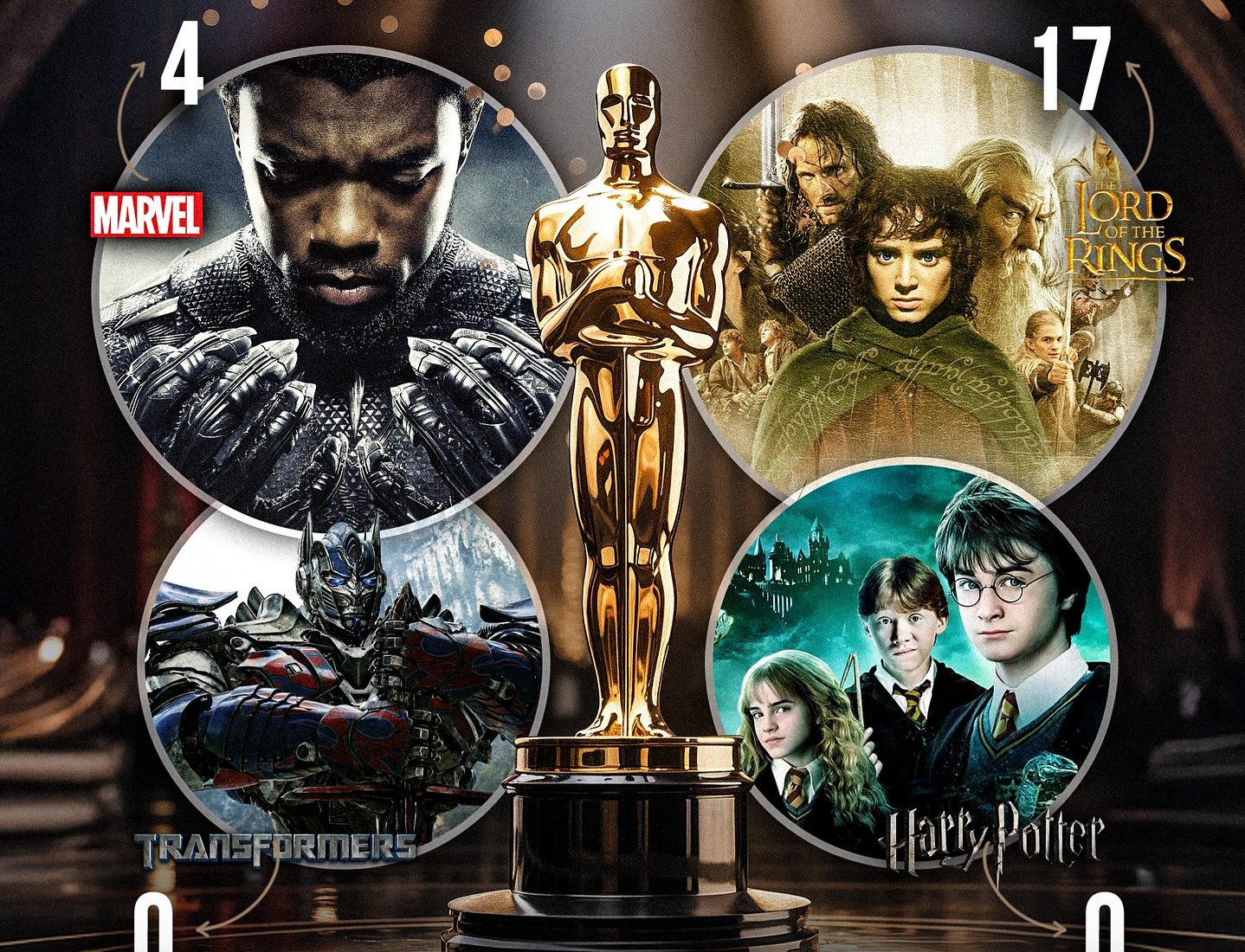The World’s Biggest Movie Franchises Have Earned Billions — But Only a Few Have Ever Won an Oscar
How Many Oscars the World’s Biggest Franchises Have
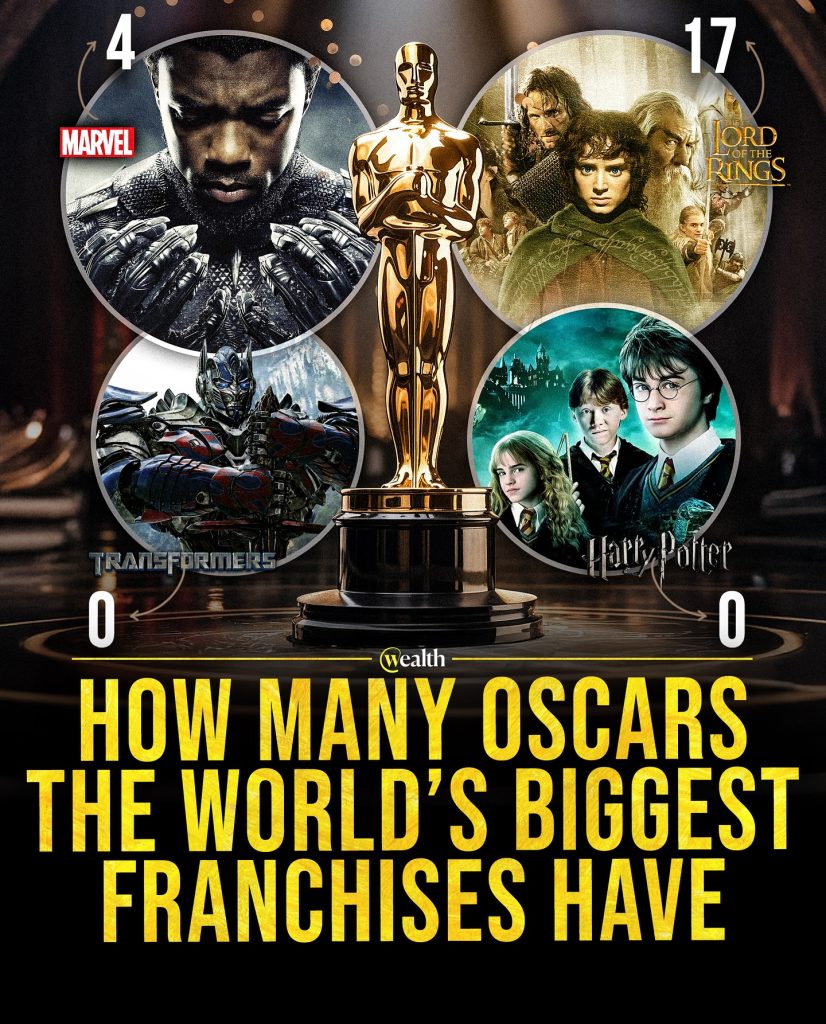
Every movie fan knows that the Oscars are Hollywood’s ultimate honor. But when you look at the world’s biggest and most profitable movie universes, something surprising happens — the gold statues don’t always match the billions earned at the box office. From fantasy worlds to superhero sagas and spy thrillers, some of the most iconic franchises in cinema history have walked away almost empty-handed.
The numbers tell a fascinating story of how the Academy rewards art, not always popularity. Let’s look at how each major franchise fared when it came to taking home the gold.
MCU — 37 Movies, 4 Oscars
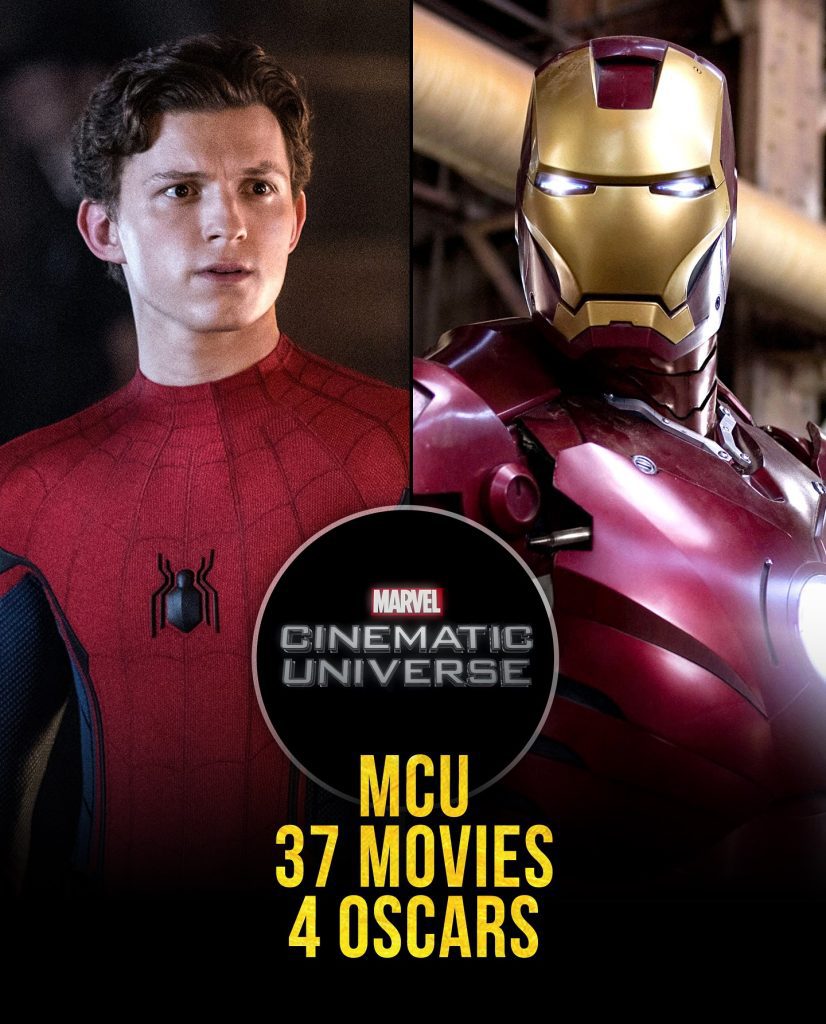
The Marvel Cinematic Universe reshaped modern storytelling. Over 37 interconnected films, Marvel built the most successful movie saga in history — crossing over characters, timelines, and entire worlds. Yet, in the eyes of the Academy, it’s earned just four Oscars.
Most of those came from Black Panther, which became the first superhero movie ever nominated for Best Picture. It won three Oscars — Best Costume Design, Best Production Design, and Best Original Score — for its stunning world-building and cultural influence. The only other win for the MCU came from Spider-Man: Into the Spider-Verse’s Oscar victory for Best Animated Feature, loosely connected to the Marvel family.
For a universe that has dominated pop culture for more than a decade, four Oscars feel almost symbolic — proof that even global impact doesn’t always sway the Academy’s traditional tastes.
DCEU — 15 Movies, 1 Oscar
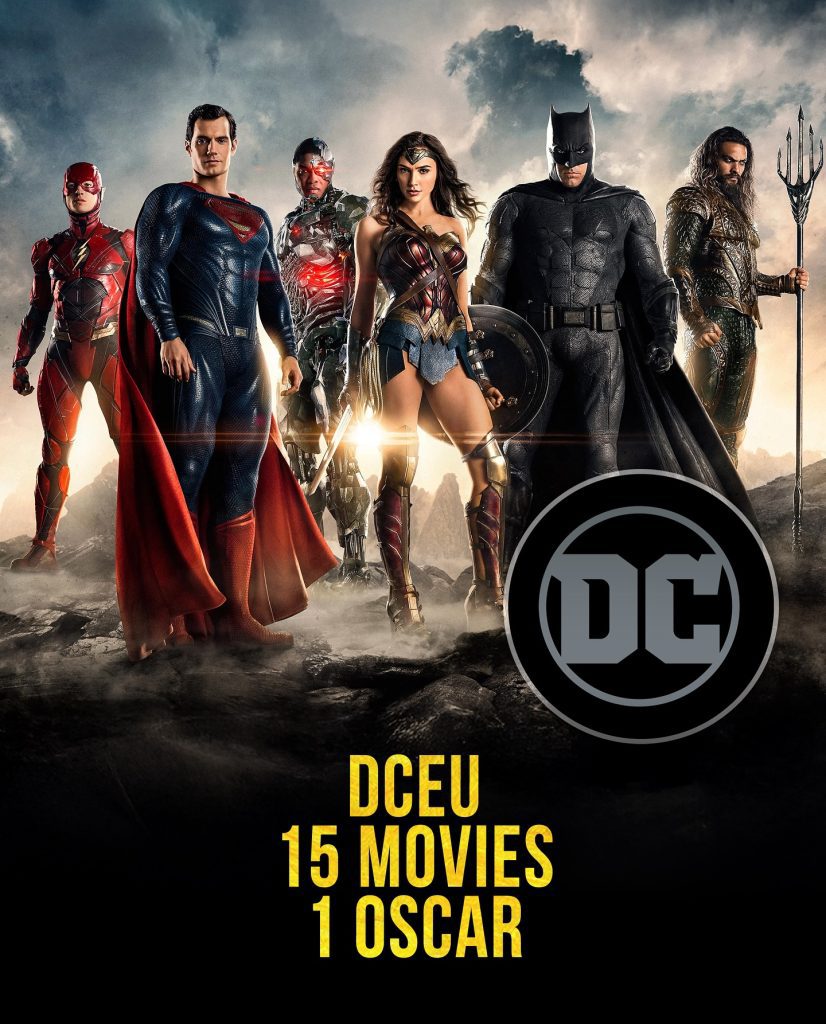
The DC Extended Universe, home to Superman, Batman, and Wonder Woman, has produced fifteen large-scale films — and earned only one Oscar. That came from Suicide Squad in 2017, for Best Makeup and Hairstyling.
While critics and fans often debate DC’s darker tone compared to Marvel’s humor, the franchise’s struggle with consistency has hurt its awards chances. Individual DC films outside the shared universe — like The Dark Knight or Joker — have seen Oscar success, proving that when DC leans into character-driven stories, the results can be extraordinary.
The DCEU, however, remains a cinematic paradox: a universe filled with gods and legends that still can’t capture Hollywood’s highest honor.
LOTR + The Hobbit — 6 Movies, 17 Oscars
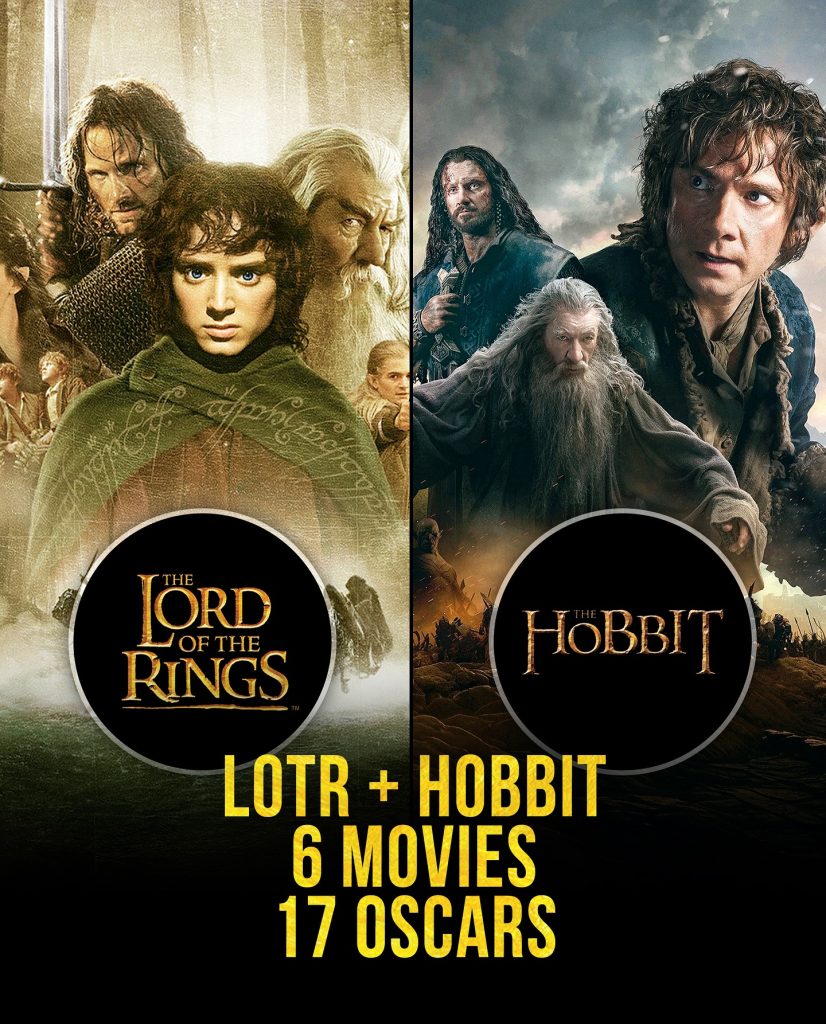
In the world of epic storytelling, nothing compares to The Lord of the Rings and The Hobbit trilogies. Across six films, this fantasy saga has claimed an astonishing seventeen Oscars — with The Return of the King making history by sweeping all eleven of its nominations in 2004.
Peter Jackson’s dedication to world-building, emotional depth, and technical perfection turned Tolkien’s novels into cinematic masterpieces. From costume design to visual effects, every aspect of Middle-earth set new industry standards.
No other fantasy franchise has achieved this level of prestige. In a genre often dismissed as escapism, The Lord of the Rings proved that imagination and artistry can coexist — and dominate the Oscars.
James Bond — 27 Movies, 6 Oscars
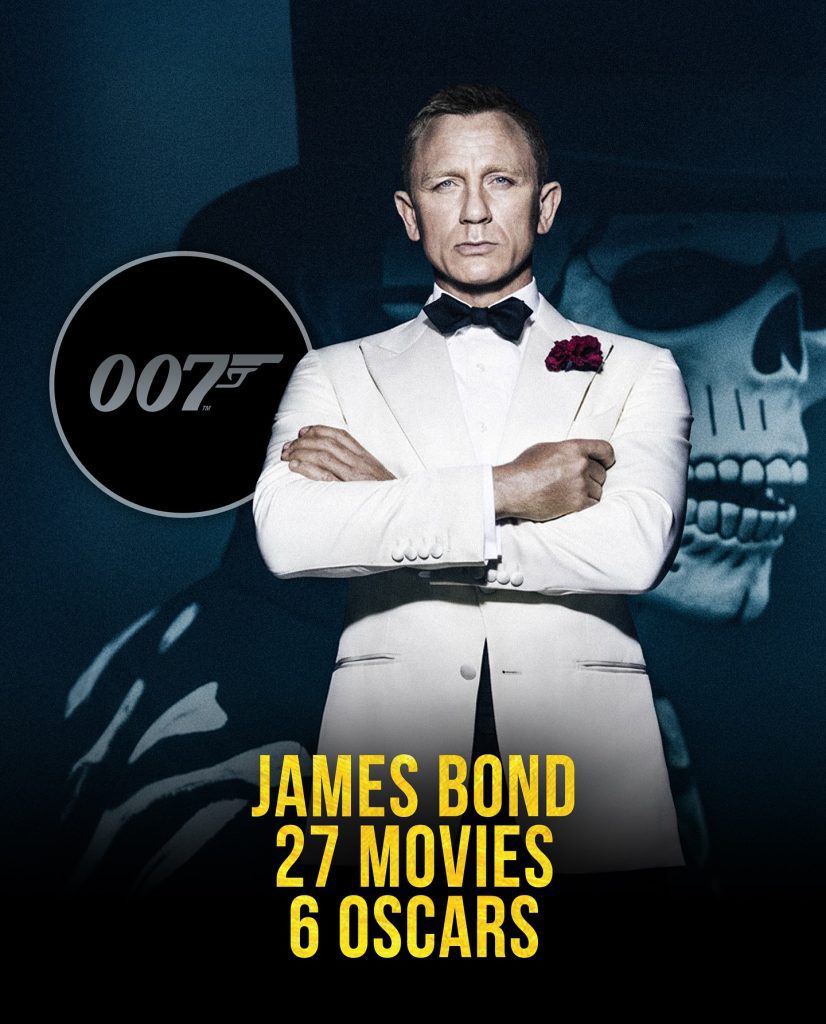
Over six decades, James Bond has evolved from cold-war spy to timeless icon. Across twenty-seven films, the 007 series has taken home six Oscars. Most of them came from technical and musical categories, including the unforgettable theme songs of Skyfall and Spectre, both of which won for Best Original Song.
Bond’s recent films have elevated the franchise’s style, cinematography, and emotional storytelling. While the early installments focused on spectacle, the Daniel Craig era brought sophistication and heart — enough to finally earn critical recognition.
The Academy may never crown Bond Best Picture, but few characters have maintained such global relevance for so long.
Star Wars — 11 Movies, 7 Oscars
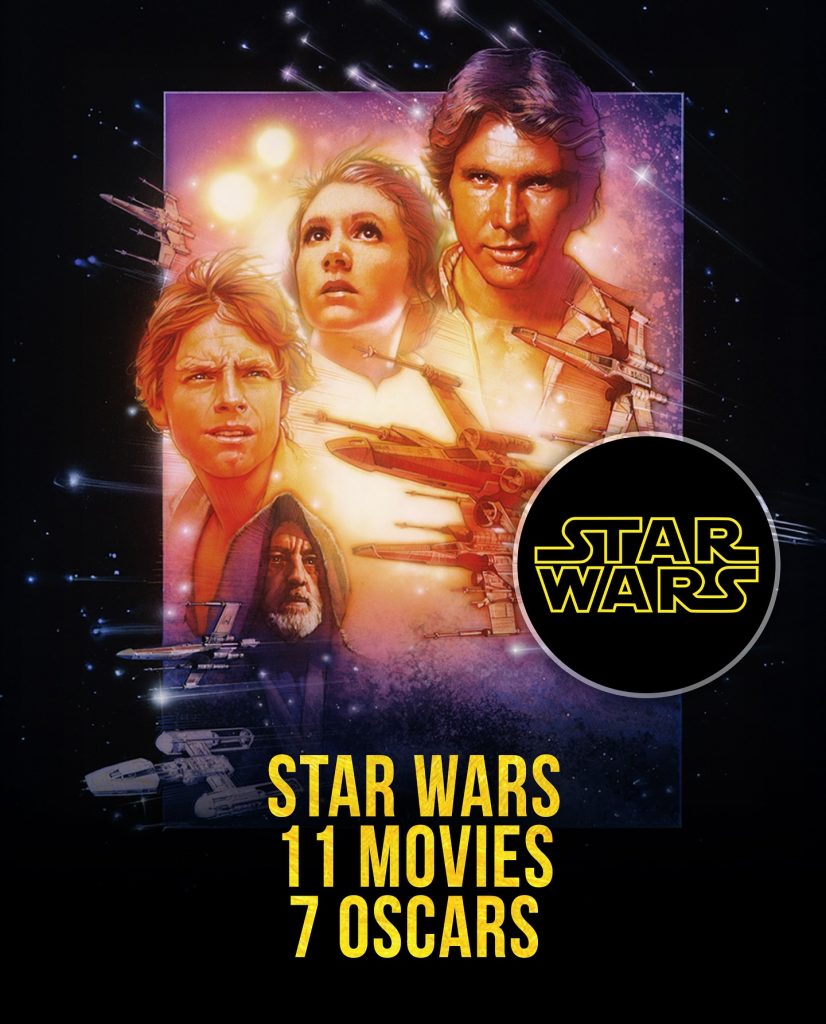
Few franchises have transformed cinema the way Star Wars did. Across eleven films, George Lucas’s galaxy far, far away has earned seven Oscars — almost all for its groundbreaking sound, editing, and visual effects.
The original 1977 Star Wars (later retitled A New Hope) was a cinematic revolution. It won six Oscars and changed filmmaking forever. From the hum of lightsabers to John Williams’ legendary score, it defined the modern blockbuster.
Even though later installments were more divisive, Star Wars remains one of the rare franchises celebrated for both cultural and technical excellence. Its influence is timeless, spanning generations and reshaping the industry itself.
Pirates of the Caribbean — 5 Movies, 1 Oscar
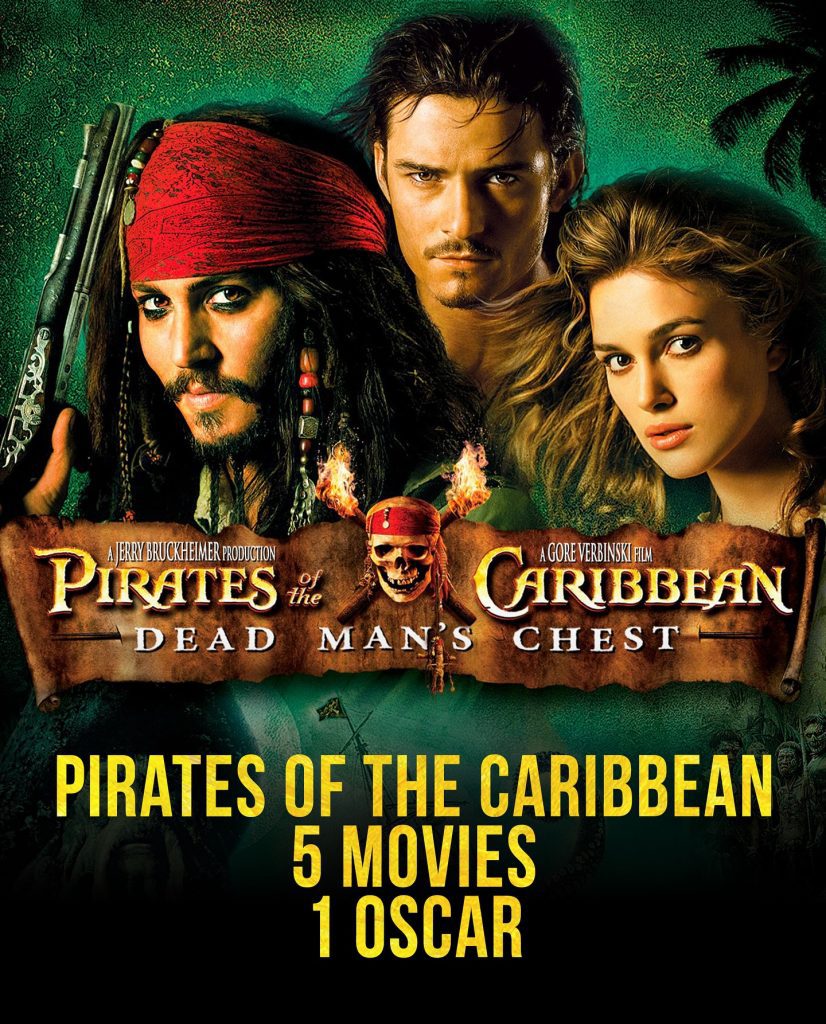
When Pirates of the Caribbean: The Curse of the Black Pearl debuted in 2003, no one expected a theme park ride adaptation to become a billion-dollar phenomenon. Johnny Depp’s unforgettable portrayal of Captain Jack Sparrow changed movie heroes forever.
Yet despite its success, the franchise has earned only one Oscar — for Best Visual Effects in Dead Man’s Chest (2006). Each sequel pushed cinematic technology forward, but the Academy rarely rewards comedy-adventure films.
Still, the Pirates saga proved that pure fun can be just as powerful as high drama. Sometimes the greatest treasures aren’t found onstage, but in the laughter of audiences.
Godzilla — 38 Movies, 1 Oscar
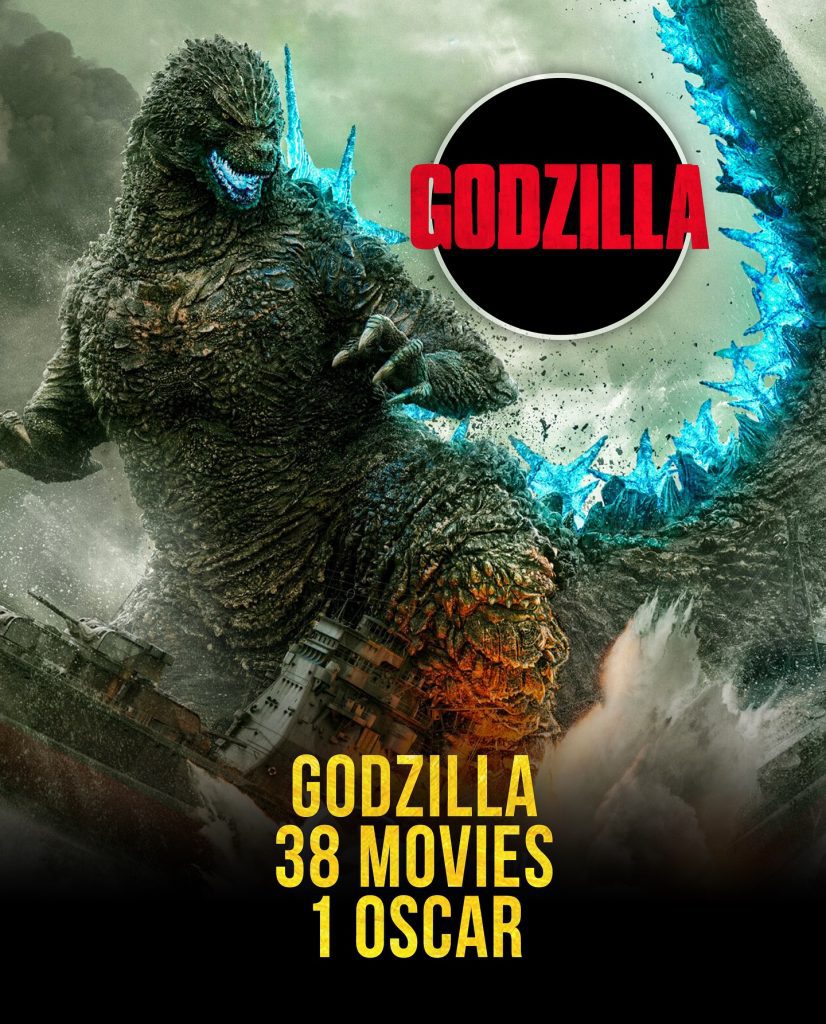
The Godzilla franchise is cinema history in motion. Starting in Japan in 1954, the King of the Monsters has appeared in thirty-eight films, from rubber-suit classics to CGI epics. For decades, it was dismissed as campy fun — until Godzilla Minus One made history in 2024 by winning the Oscar for Best Visual Effects.
That single win carried decades of legacy. It proved that the creature once considered B-movie material could be reimagined as prestige cinema. Godzilla no longer just destroys cities — it destroys expectations.
Mission: Impossible — 8 Movies, 0 Oscars

Tom Cruise has built one of the most respected action franchises ever made, yet Mission: Impossible has never won an Oscar — not even for its death-defying stunts or complex sound design.
From scaling the Burj Khalifa to jumping off cliffs, Cruise continues to redefine commitment to action cinema. The lack of Oscars doesn’t diminish the franchise’s achievement — it simply highlights the gap between technical mastery and Academy preference.
In the hearts of fans, Ethan Hunt’s impossible missions have already earned legendary status.
Transformers — 8 Movies, 0 Oscars
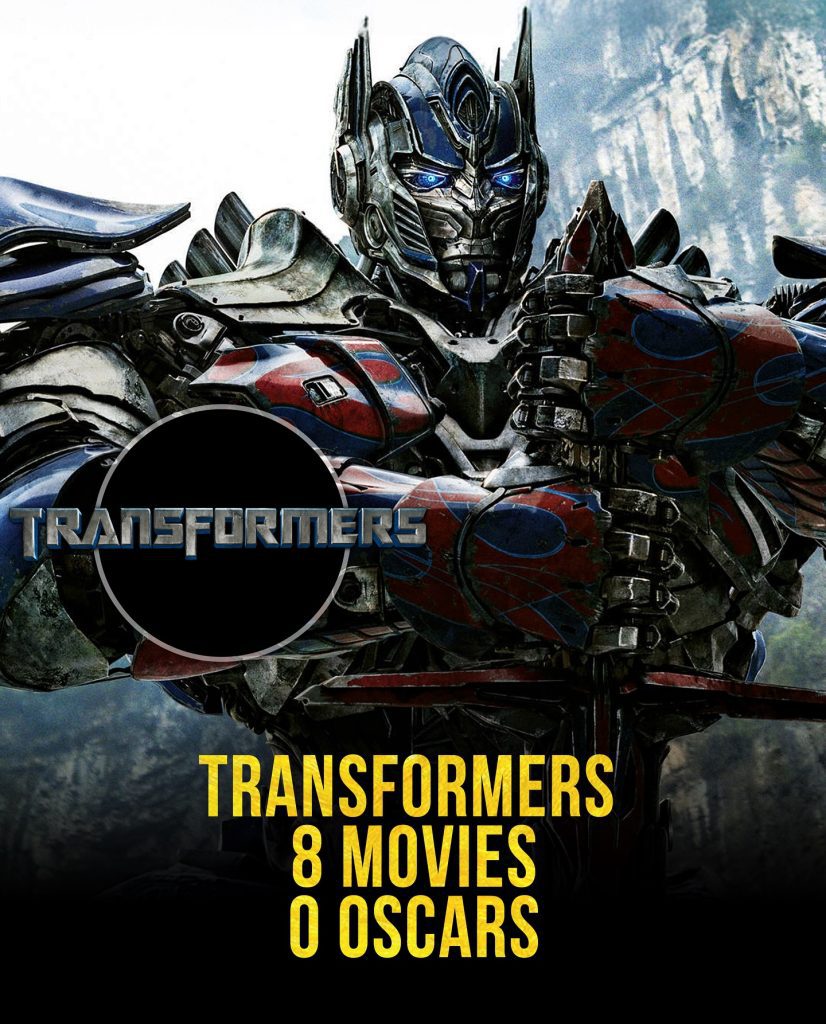
Explosions, robots, and nostalgia — the Transformers movies are pure spectacle. Eight films deep, the franchise has been a commercial powerhouse, but it has never taken home an Oscar.
Michael Bay’s visual style revolutionized action editing and effects, but critics often dismissed it as “too loud.” Still, there’s no denying the impact these films have had on modern visual effects and sound design. For fans, Optimus Prime’s speeches mean more than any golden statue ever could.
Harry Potter — 8 Movies, 0 Oscars
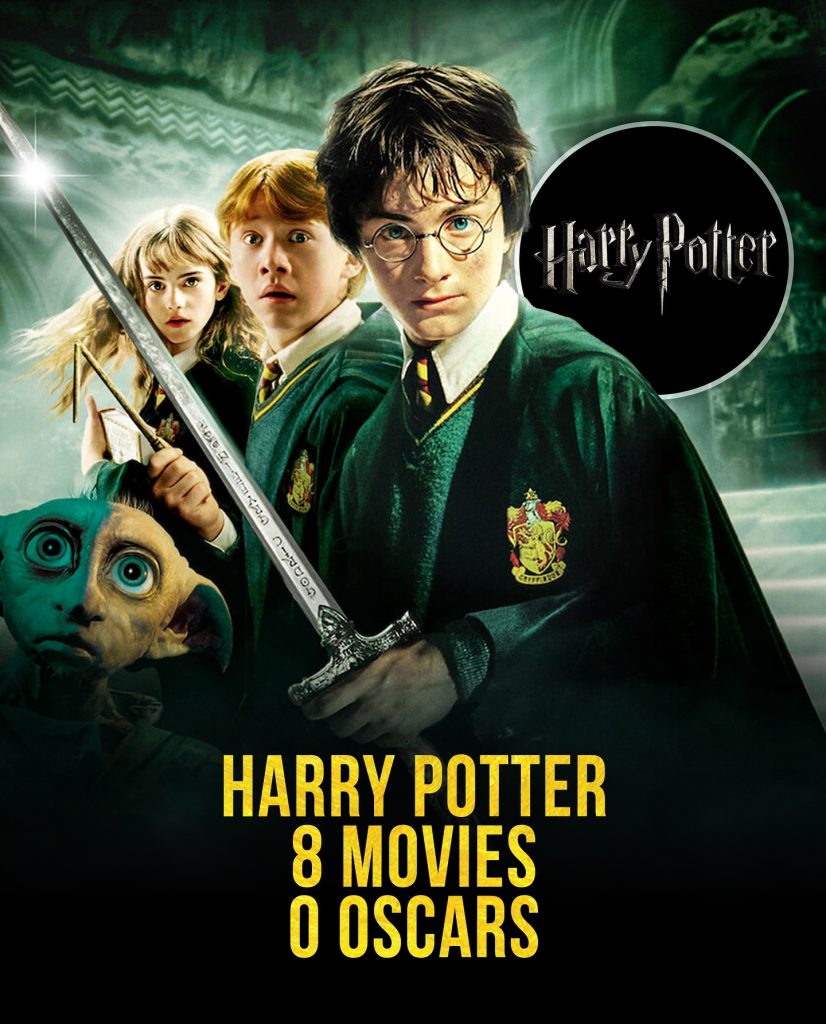
Perhaps the biggest surprise of all: Harry Potter — one of the most successful and beloved movie series ever — never won an Oscar. Across eight films filled with groundbreaking magic, beloved performances, and emotional depth, not one managed to capture Academy gold.
Fans have long considered this an injustice. The series built an entire generation’s love for storytelling and cinema. While the Wizarding World remains Oscar-less, its influence reaches far beyond trophies — into the hearts of millions who grew up waiting for their Hogwarts letters.
When you add it all up, it’s clear that the Academy Awards don’t define greatness. Franchises like Marvel, Harry Potter, and Star Wars shaped modern culture more than any statue could measure. Meanwhile, The Lord of the Rings showed that fantasy and art can coexist beautifully.
Oscar wins may sparkle for a night, but cinematic worlds like these live forever — in theaters, on streaming screens, and in the imagination of fans who never stop believing in the magic of movies.

